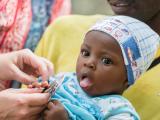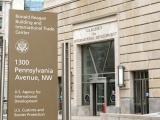Mar 23, 2012 (CIDRAP News) – Tuberculosis (TB) experts who met in Geneva this week said the global TB community needs to step up the fight against drug resistance and increase appropriate care and treatment "to avoid a scenario where TB becomes incurable," the World Health Organization (WHO) said today.
The meeting participants said TB cases with severe patterns of drug resistance are increasing and that this should be a "wake-up call" for health ministries around the world, the WHO said in a statement on the eve of World TB Day.
Earlier this week, a report from the WHO and European Union said 13.7% of new TB cases in the WHO European Region last year were multidrug-resistant strains (MDR TB), and more than 48% of previously treated cases were MDR TB.
Also, the WHO noted that four patients in India recently were described as having "totally drug-resistant" TB, and the news media subsequently reported eight more such cases.
Today's WHO statement said several new drugs in new classes of anti-mycobacterial agents are under development, but until clinical trials show their effectiveness, the WHO can't include them in recommendations for treatment regimens. However, the agency said it is leading a process to speed the drugs' introduction into clinical settings.
Results of randomized controlled trials of new TB drugs are not expected for at least 4 years, the WHO said. Meeting participants said that, during that interval, the WHO should lead a process to improve the quality and quantity of observational data on the management of severe forms of drug-resistant TB. "These data should be collected in a standardized manner which is essential for stronger future policy decisions on the management of drug-resistant TB," the statement said.
Meeting participants also urged the WHO to facilitate the "compassionate" use of new drugs, meaning "access to drugs that have gone through clinical trials, but which are not yet readily available in countries." The experts want the agency to help facilitate contacts between national TB control programs, health agencies, and drug companies to expand access to investigational new drugs.
The experts concluded that currently there is not enough evidence to adopt new case definitions for drug-resistant TB, according to the WHO. The group cited several reasons for this conclusion, including that drug susceptibility testing lacks accuracy for several of the drugs used to treat MDR TB and extensively drug-resistant TB.
Grant for TB vaccine development
In other TB developments, Emergent BioSolutions Inc. announced yesterday that it has received a multi-year grant from the US National Institute of Allergy and Infectious Diseases (NIAID) to further the development of a TB vaccine called MVA85A.
The vaccine is being developed through a partnership between Aeras and the Oxford-Emergent Tuberculosis Consortium (OETC), a joint venture between Emergent and the University of Oxford, where the vaccine was originally produced and investigated, the company said. Emergent, which is based in Rockville, Md., did not list the amount of the NIAID grant.
A phase 2b clinical trial of the vaccine involving 2,700 infants in South Africa is nearing completion, and results are expected later this year, the company said. Another phase 2b trial will involve about 1,400 adults with HIV in Senegal and South Africa.
In a related development, the NIAID issued a statement this week that emphasized the need for more research to address fundamentals questions about TB.
"To transform the field, we must address long-standing challenges in TB research, such as identifying the factors involved in the immune control of latent TB infection that allow 90 percent of otherwise healthy TB-infected individuals to never develop active disease," the agency said.
The NIAID said last year's WHO report on global TB control marked an important milestone in that it "for the first time included biomedical research as a critical component of the global fight against TB."
Meanwhile, British officials announced today that provisional figures show the United Kingdom had 9,042 new TB cases in 2011, a 5% increase over 2010. Forty percent of the total—3,588 cases—were in London, the UK Health Protection Agency (HPA) said.
The head of the HPA's TB section, Ibrahim Abubakar, MD, PhD cautioned that it's too soon to tell if the data signal a return to the upward trend of the past two decades, because the numbers may change.
See also:
Mar 23 WHO statement
Mar 22 Emergent BioSolutions press release
NIAID statement for World TB Day
Mar 23 UK HPA report on cases in 2012





















